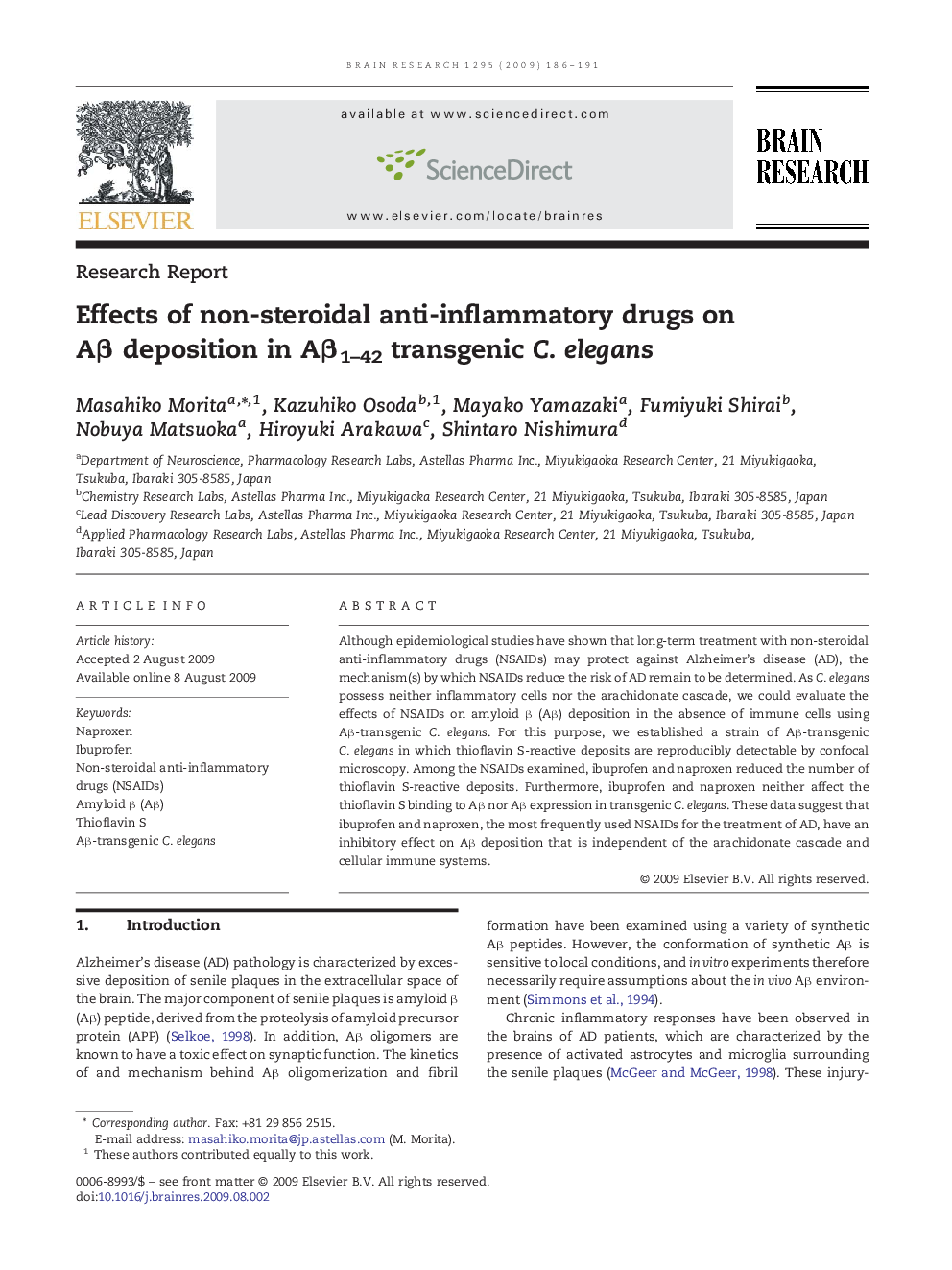| Article ID | Journal | Published Year | Pages | File Type |
|---|---|---|---|---|
| 4327903 | Brain Research | 2009 | 6 Pages |
Although epidemiological studies have shown that long-term treatment with non-steroidal anti-inflammatory drugs (NSAIDs) may protect against Alzheimer's disease (AD), the mechanism(s) by which NSAIDs reduce the risk of AD remain to be determined. As C. elegans possess neither inflammatory cells nor the arachidonate cascade, we could evaluate the effects of NSAIDs on amyloid β (Aβ) deposition in the absence of immune cells using Aβ-transgenic C. elegans. For this purpose, we established a strain of Aβ-transgenic C. elegans in which thioflavin S-reactive deposits are reproducibly detectable by confocal microscopy. Among the NSAIDs examined, ibuprofen and naproxen reduced the number of thioflavin S-reactive deposits. Furthermore, ibuprofen and naproxen neither affect the thioflavin S binding to Aβ nor Aβ expression in transgenic C. elegans. These data suggest that ibuprofen and naproxen, the most frequently used NSAIDs for the treatment of AD, have an inhibitory effect on Aβ deposition that is independent of the arachidonate cascade and cellular immune systems.
